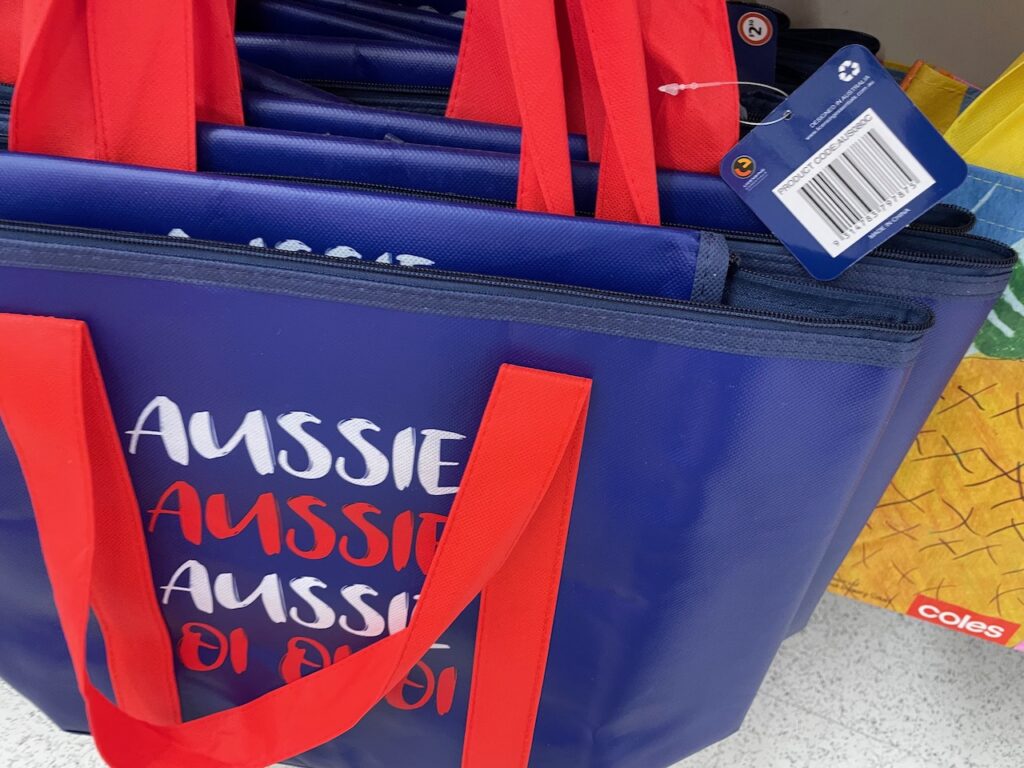One consequence of Covid that I am noticing in retail is that shoppers are more curious about product origins. More are interested and ask, and, if there is a choice between locally made and imported, there are enough preferencing locally made to for us to speak to that in buying and marketing.
As a retailers we are more aware ourselves about products that pitch Aussie or an Aussie connection, which may have been made offshore. In these instances, more shoppers notice and comment, as someone did at the Coles checkout I was at the other day, pointing out these made ins China “Aussie” bags.

It is sourcing like this that can bite a retailer. And, rightly so in my opinion. The only Aussie thing about the bags is the use of chant often hears at sports events. Okay, it says they were designed in Australia. There does not seem to be much to the design.
The bags feel like a misstep by Coles to me, but I doubt people will care. They are cheap and at the counter for easy purchase when needed.
This is where local retail businesses can make a difference. Okay, local sourcing of bags means they will be more expensive, but through this we can call out those shipping Aussie cash and jobs offshore. It all depends on what people want.
In local small business retail we want shoppers and we seek this by being different. Sourcing more locally is one way we can speak to our difference. This matters if our businesses are hit up by local charities to support them. This is where the whole sourcing local issue becomes circular. We can only help them if they help us and helping us means helping keep more jobs and Aussie cash locally.
It’s a hard care to make when so many do buy on price. My experience is that there are enough buying based in value, as opposed to price, and they are more loyal to our businesses.
As a result of Covid and challenges in the supply chain, people are more interested in sourcing locally. This is an opportunity for us.